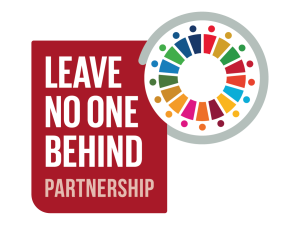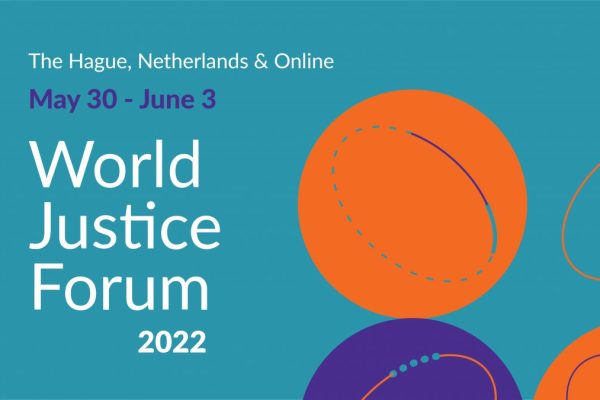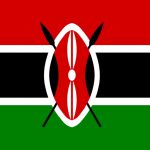Citizen-Generated Data Can Help to Leave No One Behind
07 March 2023, by The International Civil Society Centre and UN ESCAP
Citizen Generated Data (CGD) has the potential to reach the most marginalised populations, fill data gaps on sensitive areas, strengthen relationship between users and producers, and increase trust in official statistics. However, sufficient resources, capable and committed teams, and support from heads of civil society organizations, international organizations and governments are crucial for wider CGD application to ensure inclusive data collection and leave no one behind.
Inclusive Data as a Strategic Tool for Building Back Better After the Pandemic.
10 August 2022, by Chandani Lopez Peralta
On July 12, the Centre and LNOB partnership co-hosted an official side event at the 2022 High Level Political Forum together with GIZ and UNSD. Topic was “Inclusive data as a means to build back better after the pandemic.” The event started with a guest input from UNSD and two national case studies from partner countries. The presentations were followed by a panel discussion where global experts discussed about the advantages and limitations of citizen-generated data.
Community-Driven Data as a Tool to Foster Equal Rights and Non-Discrimination
16 June 2022, by Chandani Lopez Peralta
On May 31, the LNOB partnership hosted a successful virtual working session at the 2022 World Justice Forum on community-driven data as a means to foster equal rights and non-discrimination. The session featured speakers from the partnership’s country coalitions in Nepal, Malawi and India. A community representative also shared his perspectives on the added value of inclusive data approaches for his community. The exchange was followed by a panel discussion among global experts on CDD around the theme ‘Equality vs. Equity’.
A Global Partnership Yields Results: Local Change and Official Recognition for Civil Society Data
14 February 2022, by Davie Malungisa on behalf of the LNOB Partnership
The Bern Data Compact represents a major milestone towards the recognition of community-driven data in official processes, and its role in filling vital information gaps for sustainable development.
Achieving official recognition of citizen-generated data as a crucial tool to ensure no one is left behind in fulfilling each SDG has been a key goal of the Leave No One Behind Partnership since its founding in 2017, but that work didn’t start nor end at the 2021 World Data Forum.
Listening to Marginalised Women to Get to the Root of India’s Health Crises
9 February 2022, by Davie Malungisa on behalf of the LNOB Coalition in India
The Leave No One Behind India Coalition’s 100 Hotspots project recently conducted community consultations to understand the impact of COVID-19 on five marginalised groups in India.
The findings underscore the need for the Indian government to urgently prioritize the needs of marginalised communities and to follow policy recommendations identified by the communities themselves, in order to leave no one behind in its implementation of the SDGs.
A Growing Partnership: New Coalitions in Malawi and Denmark & HelpAge International Joins as Global Member
4 November 2021, by Colette Rose
The Leave No One Behind partnership is growing at both the country and global level. The partnership has launched coalitions in two new countries: Malawi and Denmark. At the global level, the partnership is excited for HelpAge International—a worldwide alliance standing up for the rights of older people— to join as a global member organisation.
Trapped in the Intersection: Youth, Gender Inequality, and Discrimination in Surkhet District, Nepal
1 November 2021, by Davie Malungisa on behalf of the LNOB Coalition in Nepal
A recent report from the Leave No One Behind Consortium in Nepal has uncovered how gender discrimination continues to restrict access to higher education and vocational skills training for girls.
This set of obstacles intersects with poverty and caste discrimination to create a series of traps for many women throughout Nepal.
COVID-19 Wreaking Havoc on Bangladesh’s Poor: A Story of Food, Cash, and Health Crises
31 August 2021, by Davie Malungisa on behalf of LNOB Coalition in Bangladesh
This is the second story from our new series of articles, focussing on the work of our partners in Bangladesh. The article highlights the situation of ten marginalised groups in the country, including ethnic minorities (indigenous peoples), river gypsies, elderly people involved in begging, people living with HIV/AIDS, people living in hard-to-reach areas (char, haor, hills, islands, forests, etc.), sex-workers, and Dalits.
Finding What the Eye Does Not See: Better Data Needed to Fight Inequality
22 July 2021, by Kathrin Strobel, Robert Bosch Stiftung
The pandemic has stirred fierce debates about many forms of inequality, but we need better data to find answers.
A new indicator being used for SDG 10 could help fill the gap – it monitors the redistributive effect of fiscal and social policy by comparing pre-tax and post-tax income inequality.
An Unequal Pandemic: Collaborative report on marginalised groups amidst the pandemic
13 July, by Peter Koblowsky
The report is a collaborative effort of the two networks of the Leave No One Behind Partnership and the Inclusive Data Charter, coming together as the “Civil Society Collaborative on Inclusive COVID-19 Data“. More than 20 CSOs representing and working with diverse marginalised communities engaged in this joint endeavour. The report harnesses the potential of data generated by communities and civil society organisations (CSOs) to create a holistic understanding of how people who have been marginalised have been impacted by the COVID-19 pandemic, their responses and resilience.

















